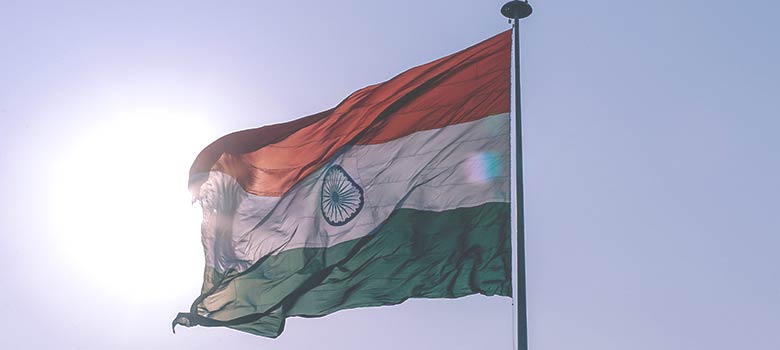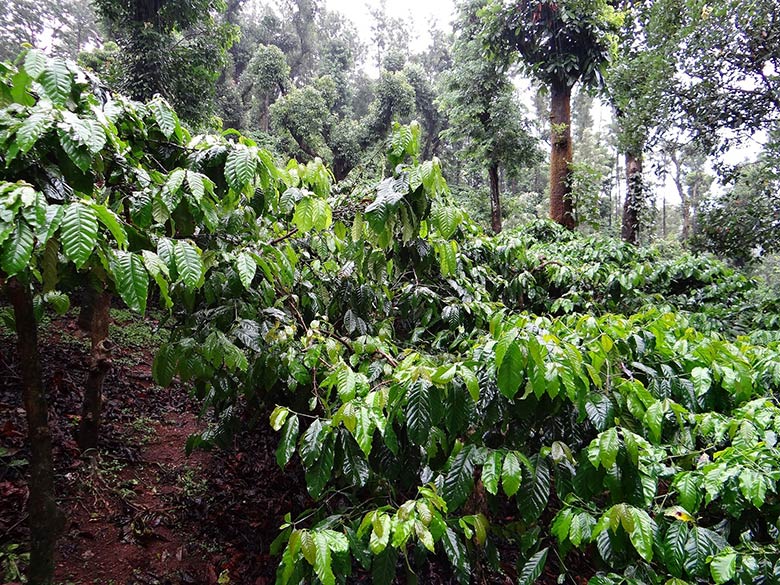Coffee around the World: A brief history of Indian coffee

India might be known more for producing some of the world’s finest teas, but the country has a long and rich history of growing stellar coffee beans too.
The Coffee Belt, which wraps around the globe between the Tropic of Cancer and the Tropic of Capricorn, is where all of the world’s coffee is grown – and with India slap bang in the middle of this prosperous coffee growing heatmap.
India therefore, was one of the earliest producers of coffee, with coffee trees basically a backyard crop as early as the 17th century.
From garden to plantation
The arrival of the British in the 1600s brought coffee plantations to the peak of Bababudan Giris, where a Hindu temple sits today, which nestled among the dense forest of coffee trees lining the sharp slopes.
The first coffee house in India was opened in Calcutta in 1780, of course, to serve the British with another being opened in Madras slightly later. #
Slowly as the British spread across hill stations and to rest of India, coffee plantations would crop up along with them.
The earliest coffee plantations in Chickmagalur and Coorg were established in late 19th century, but in the past, Indian coffee has been thought of as mediocre at best.

Robusta coffee being grown in the South Indian, Madikeri region.
Changes to the cultivation, processing and roasting of Indian coffee, alongside more modern attitudes toward safety and worker benefits, Indian coffee beans are slowly staking a claim to a place on the world coffee stage.
Until the mid-nineties, it was the Indian government that controlled all the of nation’s coffee production, where they made major profits by selling inferior coffeee to the Soviet Union.
Due to this deal, it put India in a problem position as sales to worldwide coffee brands was impossible by selling a low-quality product.
During this period the Indian government paid farmers by quantity, with no regulation or investment in increasing the quality, leading to bulk production of these cheap, poor quality coffee beans.
One woman Indian coffee revolution
Thanks to one woman, the tide was already turning even before the Indian government let go of their coffee-growing monopoly.
While the government was focused almost solely on quantity, Sunalini Menon had quietly set up a small program that paid higher prices for coffee that tasted better than most of what India was producing and exporting.
After the government was pressured to finally release its stranglehold on the industry, Sunalini Menon took early retirement and opened Coffeelab in Bangalore.
Sunalini employed nine staff members to serve as a go-between for Coffeelab and the coffee farms, using them to inspect coffees and reporting back to large chains, while advising local farmers how to improve the quality and taste of their crops.
A major issue that faces most Indian coffee farmers is that the beans harvested are almost exclusively Robusta beans, which are less favoured than the much more commonly adopted Arabica.
Sunalini Menon believes that this is due more to the way that Robusta beans are processed than to any supposed inferiority of the beans themselves.
Wet roasting has proved to be key in helping to bring out the buttery and spicy flavour found in the Indian Robusta beans, but setting up a wet-roasting operation can be fairly expensive, especially for small independent farmers with little to no capital.
Environmental and human benefits
Growing coffee in India often requires growing other crops as well such as cardamom, cocoa, areca nuts and coconuts.
Almost all Indian coffee is grown in the shade, which means that workers are not forced to spend hours harvesting the beans in unrelenting sunlight.
Coffee workers on plantations receive generous benefits including free housing, maternity leave and child care as well as pensions. On top of the human benefits, almost all Indian coffee is sustainable and bird-friendly, making the Indian coffee industry not only an exciting venture, but an ethical one.
In a nation predominantly known for it’s vast tea exports, India is slowly building a reputation as an up-and-coming coffee growing nation – something we know all about with our most popular Super Crema blend relying on some of the finest Arabica the nation has to offer.
